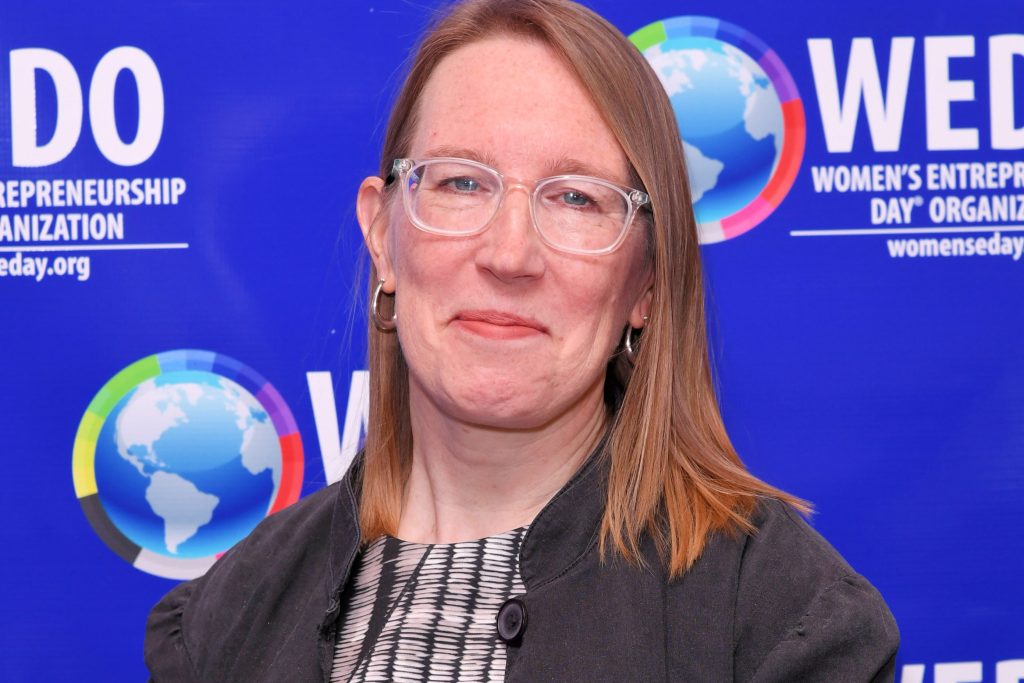“If government sets up too many regulatory hurdles, people stop trying to build new things,” said SEC Commissioner Hester Peirce at the Wharton Fintech Lecture Series event in Washington D.C. this week.
In her speech, Peirce outlined the ways in which her agency has often asked too much of the fintech arena, specifically new funds developed to meet investors’ diverse needs and interests.
Crypto innovation delayed
Currently, the most exciting fintech innovation still often centers on funds registered under the Investment Company Act, as sponsors develop products to meet investors’ diverse needs and interests, Peirce noted.
“Yet the Commission, wary of letting investors and their advisers weigh the merits of these products for their specific needs, inhibits innovation by taking an unduly long time to approve them or by imposing conditions not grounded in statute,” she said.
Starting last year, a new set of exchange-traded products (ETPs) gave retail investors access to crypto assets. These products are not regulated under the Investment Company Act, but the exchanges seeking to list them must first obtain SEC approval.
Peirce pointed out that the SEC routinely approves the listing of similar ETPs, but it repeatedly refused to approve these product listings until its hand was forced, allowing exchanges to list spot bitcoin ETPs in January 2024 and spot ether ETPs in July 2024, albeit both with conditions that arguably prevent the products from functioning optimally, she said.
“Settled enforcement actions almost always entail severe harm to the crypto project, stripping away key functionalities …”
Hester Peirce, SEC Commissioner
The product categories have been extremely popular with the public, she observed. But she said of the SEC: “Our unreasonable approach to these applications has signaled that regulatory prejudice against new products and services can lead us to sidestep the law and unreasonably delay product launches.”
Applications for other crypto-based ETPs already have begun to trickle in, she said. “We must consider each on its own facts and circumstances, but we should not bolt the door shut. As illustrated by the ETP episode, the SEC generally has not had an open mind when it comes to crypto.”
She said the agency has used its enforcement powers to make crypto innovation a perilous occupation, making registration impossible for all but a handful of crypto companies.
“Rather than working with crypto market intermediaries and token issuers to facilitate registration, we have brought enforcement actions for failure to do the impossible – register with a Commission that has failed willfully to articulate a viable path to registration. Settled enforcement actions almost always entail severe harm to the crypto project, stripping away key functionalities, or forcing an end to doing all or most business in the United States,” Peirce said.
Compliance path needed for crypto tech
She went on to say that the SEC has been unduly focused on enforcement, letting legal uncertainty fester without clarifying its jurisdictional boundaries or the feasible compliance pathways crypto companies can take, “to the point that it is now a major deterrent to operating in the digital assets space in the United States.”
Focusing on crypto technology, Peirce reminded her audience that such technology has produced tools that could be integrated into the traditional financial system.
These include cryptographically secured ledgers distributed across a decentralized network of computers; peer-to-peer value transfer that avoids the double-spend problem, cuts out intermediaries, and allows for cheap cross-border payments; the ability to pair the transmission of value with communication of “expressive content”; smart contracts, which automate ex ante the execution of actions, such as payments, collateral provision, and regulatory requirements; and the elimination of intermediaries.
“To see decentralized finance complement traditional finance, regulators must stop blanching at the mere mention of crypto and must welcome experimentation by both crypto natives and traditional financial firms,” she said.
A hostile, hard-to-navigate regulatory environment discourages traditional financial firms from trying things in the US, she said, especially when it is communicated via regulatory pressure to stay away from crypto and distributed ledger technology in subtle signals from the SEC, or sometimes the imposition of costly barriers.
“Much of this experimentation is happening outside the United States because of the fear of an unpredictable and adverse response by American regulators.”
Hester Peirce, SEC Commissioner
“The now-infamous Staff Accounting Bulletin 121 is an example of the SEC dissuading traditional financial firms from serving crypto clients,” she said, adding that “the document made it prohibitively costly for most banks and broker-dealers to act as crypto custodians.”
As another example, she said the SEC Division of Examinations has identified (for several years now) some variation of “registrants offering crypto-related services” as an exam priority.
Focusing on crypto, which has been plagued by fraud, is not inherently problematic, she said. But crypto firms fear the SEC’s overly particular reviews and skepticism of the crypto arena, in turn creating fears of these examinations. She said the SEC could get around that by empowering the examination staff to work with broker-dealers and investment advisers on best practices that are both commercially viable and consistent with the law – with tailored custody rules, disclosure requirements, and other regulations designed specifically for crypto.
Asset tokenization, she noted, is one area in which experimentation has begun in earnest. “Much of this experimentation is happening outside the United States because of the fear of an unpredictable and adverse response by American regulators,” she said.
Tokenization allows different types of assets to travel on the same rails; streamlines trading and settlement processes; makes intraday transactions feasible; synchronizes multiple legs of a transaction; uses software code instead of intermediaries; generates reliable ownership and transfer records; and automates performance of contractual terms,” she said.
Private fund sponsors are also trying tokenization but, again, much of this activity is happening outside the US because the regulatory environment here is too uncertain, Peirce observed. “US regulators should be more open to a technology that could make these funds more accessible and cheaper for investors.
“An unclear regulatory framework creates unnecessary angst for innovators who do not know whether and when their work might fall into regulatory disfavor. It also harms the public by keeping from them the innovations they would otherwise enjoy,” Peirce concludes.











